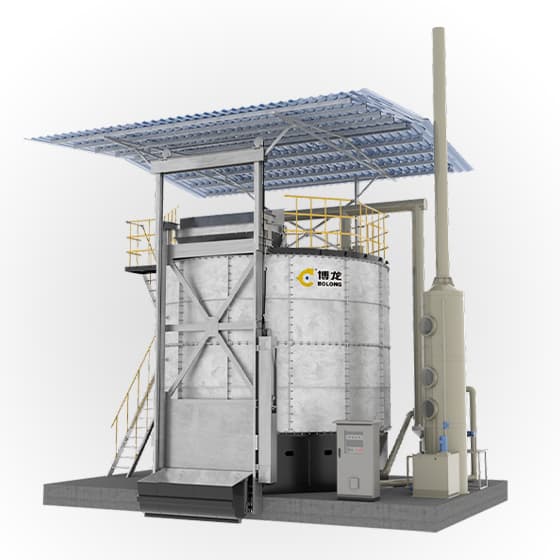Introduction
Livestock fermentation tanks offer promising opportunities for integrating sustainable waste management practices into urban agriculture systems. This article explores the benefits and challenges of incorporating fermentation tanks into urban farming initiatives and highlights strategies for successful integration.

Maximizing Space Efficiency
- Vertical Farming Structures:
Utilize vertical farming structures equipped with fermentation tanks to optimize space utilization in urban environments. Vertical design allows for multi-level cultivation while accommodating waste management infrastructure.
- Rooftop Gardens and Greenhouses:
Install fermentation tanks on rooftops of buildings, greenhouses, or other urban structures to maximize available space. Rooftop gardens and greenhouses provide ideal locations for integrating fermentation tank systems into urban agriculture.

Sustainable Resource Recovery
- Organic Waste Recycling:
Fermentation tanks convert organic waste streams, such as food scraps and crop residues, into valuable resources, including biogas and compost. Urban farms can utilize fermentation tank systems to recycle organic waste generated within the city.
- Closed-Loop Nutrient Cycling:
Compost produced in fermentation tanks can be used to enrich urban soil and promote sustainable urban agriculture practices. Closed-loop nutrient cycling minimizes the need for external inputs and reduces reliance on synthetic fertilizers.
Community Engagement and Education
- Educational Outreach Programs:
Engage with local communities through educational outreach programs and workshops to raise awareness about urban agriculture and sustainable waste management. Demonstrate the benefits of fermentation tank technology in enhancing urban sustainability.
- Community Gardens and Allotments:
Establish community gardens or allotments equipped with fermentation tanks to promote community involvement in urban agriculture initiatives. Community-based projects foster social cohesion and empower residents to participate in sustainable practices.
Regulatory Compliance and Permitting
- Collaboration with Authorities:
Work closely with local authorities and regulatory agencies to ensure compliance with zoning regulations, building codes, and environmental permits. Collaboration with regulatory bodies facilitates the integration of fermentation tank systems into urban farming operations.
- Public Health and Safety Measures:
Implement measures to address public health and safety concerns associated with urban agriculture, such as odor control, waste handling protocols, and hygiene practices. Proactive management of environmental risks enhances community acceptance and support.
Conclusion
Integrating livestock fermentation tanks into urban agriculture systems offers a sustainable solution for managing organic waste and promoting resource recovery in densely populated areas. By maximizing space efficiency, implementing sustainable resource recovery practices, engaging with communities, and addressing regulatory considerations, urban farms can successfully integrate fermentation tank technology into their operations, contributing to urban sustainability and resilience.
